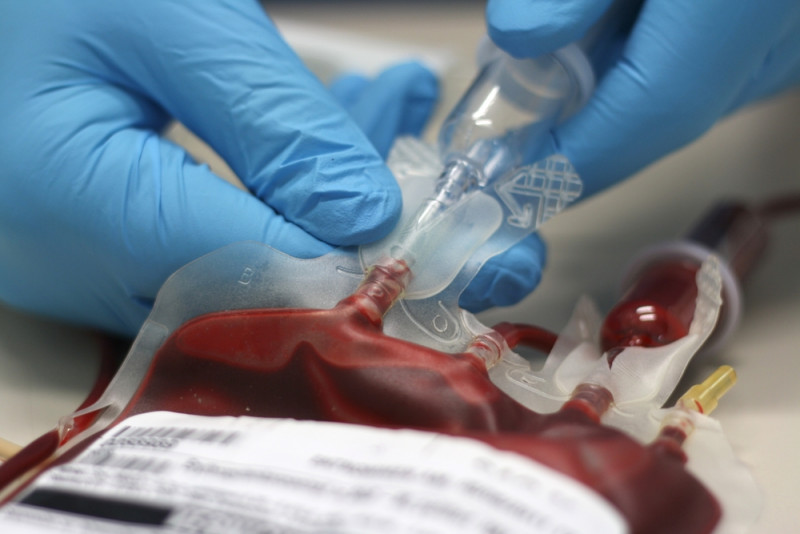Do We Have to Die for Change?
Written by |

June 19 was both World Sickle Cell Day and Juneteenth! It wasn’t until last year that I learned about Juneteenth — forgive me, I’m a Londoner. Similarly, many of my peers found out about World Sickle Cell Day only after meeting me. Last year, Juneteenth was highlighted to me only because it occurred in the stretch after George Floyd’s death, when black justice protests hit their peak.
2020 was a melting pot of emotion for many, especially for black people. During that period, I wondered a lot about how I could support others practically. In lockdown I felt trapped because I was shielding since patients with sickle cell were identified as extremely vulnerable to COVID-19. It was a helpless feeling, another reminder that fighting my personal battle with sickle cell sometimes doesn’t afford me the ability to fight wider battles.
Last year’s events helped me realize that although I must keep myself safe and the beast locked up, I still have a responsibility to fight the good fight and help where I can. I decided to hone in on improving black health, particularly the care and treatment of sickle cell patients, of whom 86.3% are black.
I resolved to raise awareness of the need for black blood donors by sharing my story. Blood transfusion is a method used to treat sickle cell patients, and having a diverse blood pool means that patients can be better and more easily matched for transfusions. However, worldwide, black people donate blood at significantly low rates. For example, 13% of the U.S. is made up of black individuals yet less than 3% are blood donors.
“A commonly held idea among Black participants was that blood donation was somewhat suspicious, their blood was unwanted, and their blood should preferably not be given,” write researchers in medical journal Nursing Research who analyzed reasons for challenges in obtaining blood donations from minority groups. The article also cites “medical mistrust,” reflecting the many reasons black people lack trust in governments and corporations, including past unethical medical experimentation.
I’ve been tormented by the thought of a sickle cell patient turning up to the hospital and not being treated because the right blood isn’t available. It wasn’t just fear for myself, but others like me fighting for their lives. This nightmare has inspired me to work with my own community to prevent deaths. I started with a few friends and then grew my platform to the wider community by speaking at churches and events. I channeled my helpless feeling into an important sector in the fight for black lives.
Tragically, in April 2019 a 21-year-old man with sickle cell, Evan Smith, lost his life because of inappropriate medical care due to hospital staff lacking awareness of necessary sickle cell treatment. The reports stated that if he had received a blood transfusion, it would have likely saved his life. This really shook me because this is what I had hoped to prevent — someone with a condition like mine dying unnecessarily.
Just as Floyd’s death has amplified awareness of Juneteenth and energized movements for black individuals’s rights, Smith’s untimely death has triggered an impact. In memory of Smith and World Sickle Cell Day, there has been a sharper push to increase black blood donors in the U.K. My peers’ and wider community’s support has been outstanding.
As much as it brings me joy to see this change, it also comes with a heavy heart. People shouldn’t have to die before change can happen. I hope that we can all make a real change by boosting awareness, fighting injustice, and learning from past mistakes.
***
Note: Sickle Cell Anemia News is strictly a news and information website about the disease. It does not provide medical advice, diagnosis, or treatment. This content is not intended to be a substitute for professional medical advice, diagnosis, or treatment. Always seek the advice of your physician or other qualified health provider with any questions you may have regarding a medical condition. Never disregard professional medical advice or delay in seeking it because of something you have read on this website. The opinions expressed in this column are not those of Sickle Cell Anemia News or its parent company, Bionews, and are intended to spark discussion about issues pertaining to sickle cell anemia.






Alvin R Robinson jr
Can ss and sc donate blood?
Dunstan Nicol-Wilson
Only if it is the trait. If it's full SS and SC then you would be unable to. If you have any uncertainty please do check with your physician!
Tulsi Patel
Great read, Dunstan! Amazing work and very inspiring. I’ve learnt a lot about the disease through you, thank you!
Beverley De-Gale
Thank you for writing this article Dunstan. Since we all became aware of Evan Nathan Smith’s tragic untimely passing it has put the spotlight on us all to consider donating blood and being part of the solution for sickle cell patients and blood cancer patients in urgent need of well matched blood from within the black community. My charity has campaigned for 25 years, encouraging the black community to donate blood. Please could you add the below link so that interested readers can sign up to donate blood today.
https://www.blood.co.uk/why-give-blood/demand-for-different-blood-types/why-more-black-blood-donors-are-needed/?utm_source=web&utm_medium=referral&utm_campaign=cis_214&utm_content=a07_web&utm_term=bame
Thank you Bev De-Gale, ACLT Co-Founder.
Dunstan Nicol-Wilson
Hey Bev. Thanks for all the work you do with your charity!